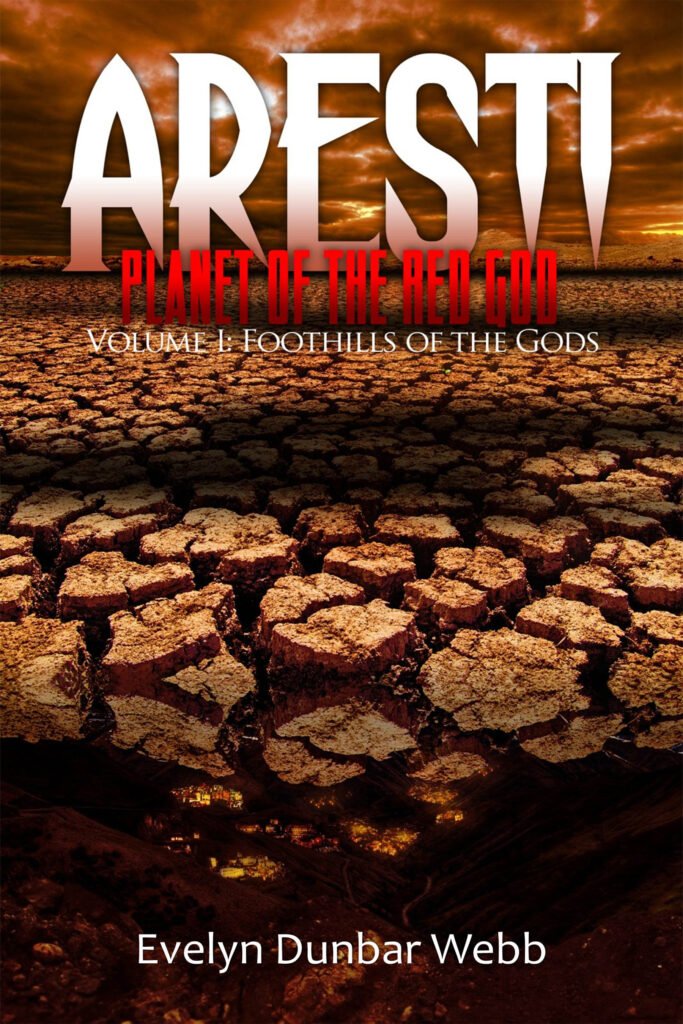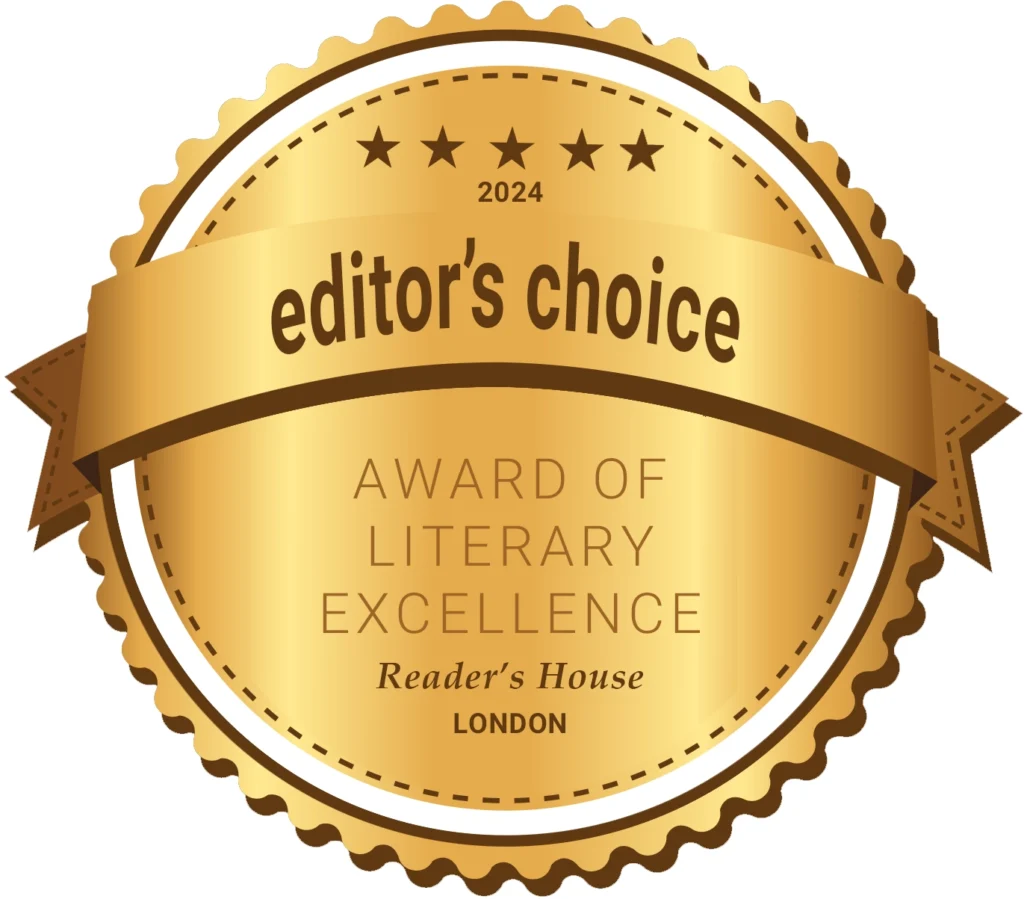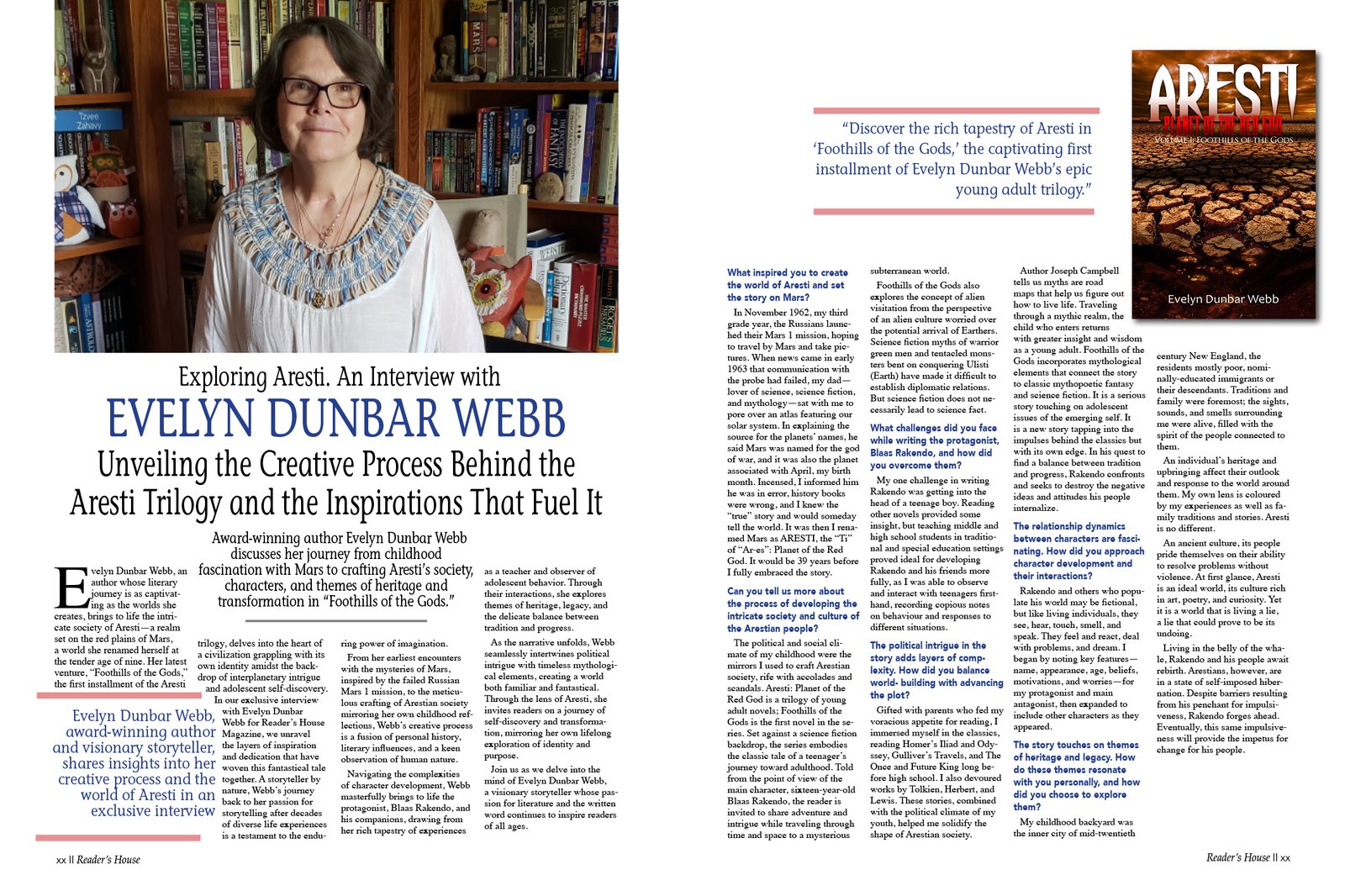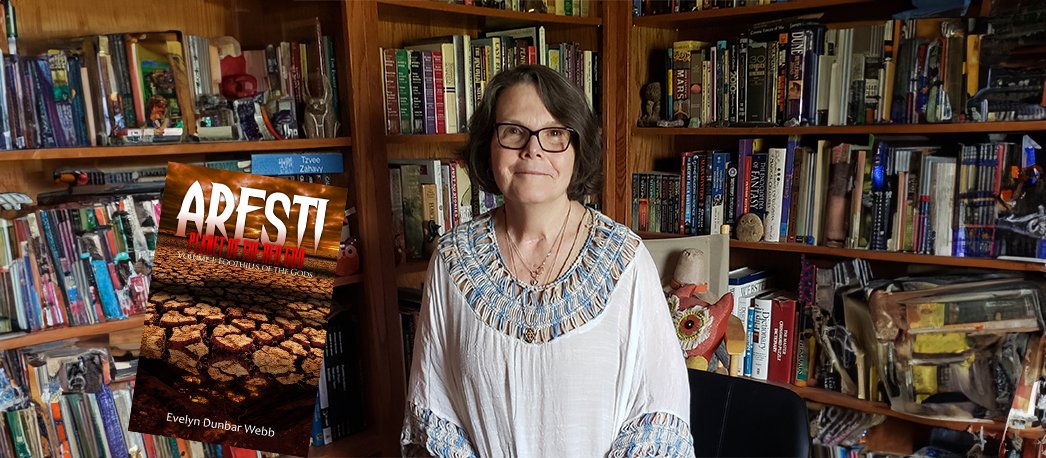Unveiling the Creative Process Behind the Aresti Trilogy and the Inspirations That Fuel It
Award-winning author Evelyn Dunbar Webb discusses her journey from childhood fascination with Mars to crafting Aresti’s society, characters, and themes of heritage and transformation in Foothills of the Gods.
Evelyn Dunbar Webb, an author whose literary journey is as captivating as the worlds she creates, brings to life the intricate society of Aresti—a realm set on the red plains of Mars, a world she renamed herself at the tender age of nine. Her latest venture, Foothills of the Gods, the first instalment of the Aresti trilogy, delves into the heart of a civilisation grappling with its own identity amidst the backdrop of interplanetary intrigue and adolescent self-discovery.
In our exclusive interview with Evelyn Dunbar Webb for Reader’s House Magazine, we unravel the layers of inspiration and dedication that have woven this fantastical tale together. A storyteller by nature, Webb’s journey back to her passion for storytelling after decades of diverse life experiences is a testament to the enduring power of imagination.
From her earliest encounters with the mysteries of Mars, inspired by the failed Russian Mars 1 mission, to the meticulous crafting of Arestian society mirroring her own childhood reflections, Webb’s creative process is a fusion of personal history, literary influences, and a keen observation of human nature.
Navigating the complexities of character development, Webb masterfully brings to life the protagonist, Blaas Rakendo, and his companions, drawing from her rich tapestry of experiences as a teacher and observer of adolescent behaviour. Through their interactions, she explores themes of heritage, legacy, and the delicate balance between tradition and progress.
As the narrative unfolds, Webb seamlessly intertwines political intrigue with timeless mythological elements, creating a world both familiar and fantastical. Through the lens of Aresti, she invites readers on a journey of self-discovery and transformation, mirroring her own lifelong exploration of identity and purpose.
Join us as we delve into the mind of Evelyn Dunbar Webb, a visionary storyteller whose passion for literature and the written word continues to inspire readers of all ages.
What inspired you to create the world of Aresti and set the story on Mars?
In November 1962, my third grade year, the Russians launched their Mars 1 mission, hoping to travel by Mars and take pictures. When news came in early 1963 that communication with the probe had failed, my dad—lover of science, science fiction, and mythology—sat with me to pore over an atlas featuring our solar system. In explaining the source for the planets’ names, he said Mars was named for the god of war, and it was also the planet associated with April, my birth month. Incensed, I informed him he was in error, history books were wrong, and I knew the “true” story and would someday tell the world. It was then I renamed Mars as ARESTI, the “Ti” of “Ar-es”: Planet of the Red God. It would be 39 years before I fully embraced the story.
Can you tell us more about the process of developing the intricate society and culture of the Arestian people?
The political and social climate of my childhood were the mirrors I used to craft Arestian society, rife with accolades and scandals. Aresti: Planet of the Red God is a trilogy of young adult novels; Foothills of the Gods is the first novel in the series. Set against a science fiction backdrop, the series embodies the classic tale of a teenager’s journey toward adulthood. Told from the point of view of the main character, sixteen-year-old Blaas Rakendo, the reader is invited to share adventure and intrigue while traveling through time and space to a mysterious subterranean world.
Foothills of the Gods also explores the concept of alien visitation from the perspective of an alien culture worried over the potential arrival of Earthers. Science fiction myths of warrior green men and tentacled monsters bent on conquering Ulisti (Earth) have made it difficult to establish diplomatic relations. But science fiction does not necessarily lead to science fact.
What challenges did you face while writing the protagonist, Blaas Rakendo, and how did you overcome them?
My one challenge in writing Rakendo was getting into the head of a teenage boy. Reading other novels provided some insight, but teaching middle and high school students in traditional and special education settings proved ideal for developing Rakendo and his friends more fully, as I was able to observe and interact with teenagers first-hand, recording copious notes on behaviour and responses to different situations.
The political intrigue in the story adds layers of complexity. How did you balance world- building with advancing the plot?
Gifted with parents who fed my voracious appetite for reading, I immersed myself in the classics, reading Homer’s Iliad and Odyssey, Gulliver’s Travels, and The Once and Future King long before high school. I also devoured works by Tolkien, Herbert, and Lewis. These stories, combined with the political climate of my youth, helped me solidify the shape of Arestian society.
Author Joseph Campbell tells us myths are road maps that help us figure out how to live life. Traveling through a mythic realm, the child who enters returns with greater insight and wisdom as a young adult. Foothills of the Gods incorporates mythological elements that connect the story to classic mythopoetic fantasy and science fiction. It is a serious story touching on adolescent issues of the emerging self. It is a new story tapping into the impulses behind the classics but with its own edge. In his quest to find a balance between tradition and progress, Rakendo confronts and seeks to destroy the negative ideas and attitudes his people internalise.
The relationship dynamics between characters are fascinating. How did you approach character development and their interactions?
Rakendo and others who populate his world may be fictional, but like living individuals, they see, hear, touch, smell, and
speak. They feel and react, deal with problems, and dream. I began by noting key features—name, appearance, age, beliefs, motivations, and worries—for my protagonist and main antagonist, then expanded to include other characters as they appeared.
The story touches on themes of heritage and legacy. How do these themes resonate with you personally, and how did you choose to explore them?
My childhood backyard was the inner city of mid-twentieth century New England, the residents mostly poor, nominally-educated immigrants or their descendants. Traditions and family were foremost; the sights, sounds, and smells surrounding me were alive, filled with the spirit of the people connected to them.
An individual’s heritage and upbringing affect their outlook and response to the world around them. My own lens is coloured by my experiences as well as family traditions and stories. Aresti is no different.
An ancient culture, its people pride themselves on their ability to resolve problems without violence. At first glance, Aresti is an ideal world, its culture rich in art, poetry, and curiosity. Yet it is a world that is living a lie, a lie that could prove to be its undoing.
Living in the belly of the whale, Rakendo and his people await rebirth. Arestians, however, are in a state of self-imposed hibernation. Despite barriers resulting from his penchant for impulsiveness, Rakendo forges ahead. Eventually, this same impulsiveness will provide the impetus for change for his people.
EDITOR’S CHOICE
“Aresti captivates with rich world-building, gripping mystery, and compelling characters. It’s a must-read adventure!”
Aresti: Planet of the Red God Volume 1 by Evelyn Dunbar Webb is a riveting exploration of adventure and mystery set in the captivating world of Mars. Webb’s skillful storytelling weaves together a tale of intrigue and danger that will keep readers on the edge of their seats from beginning to end.


Evelyn Dunbar Webb and a select group of exceptional authors by Reader’s House magazine.



